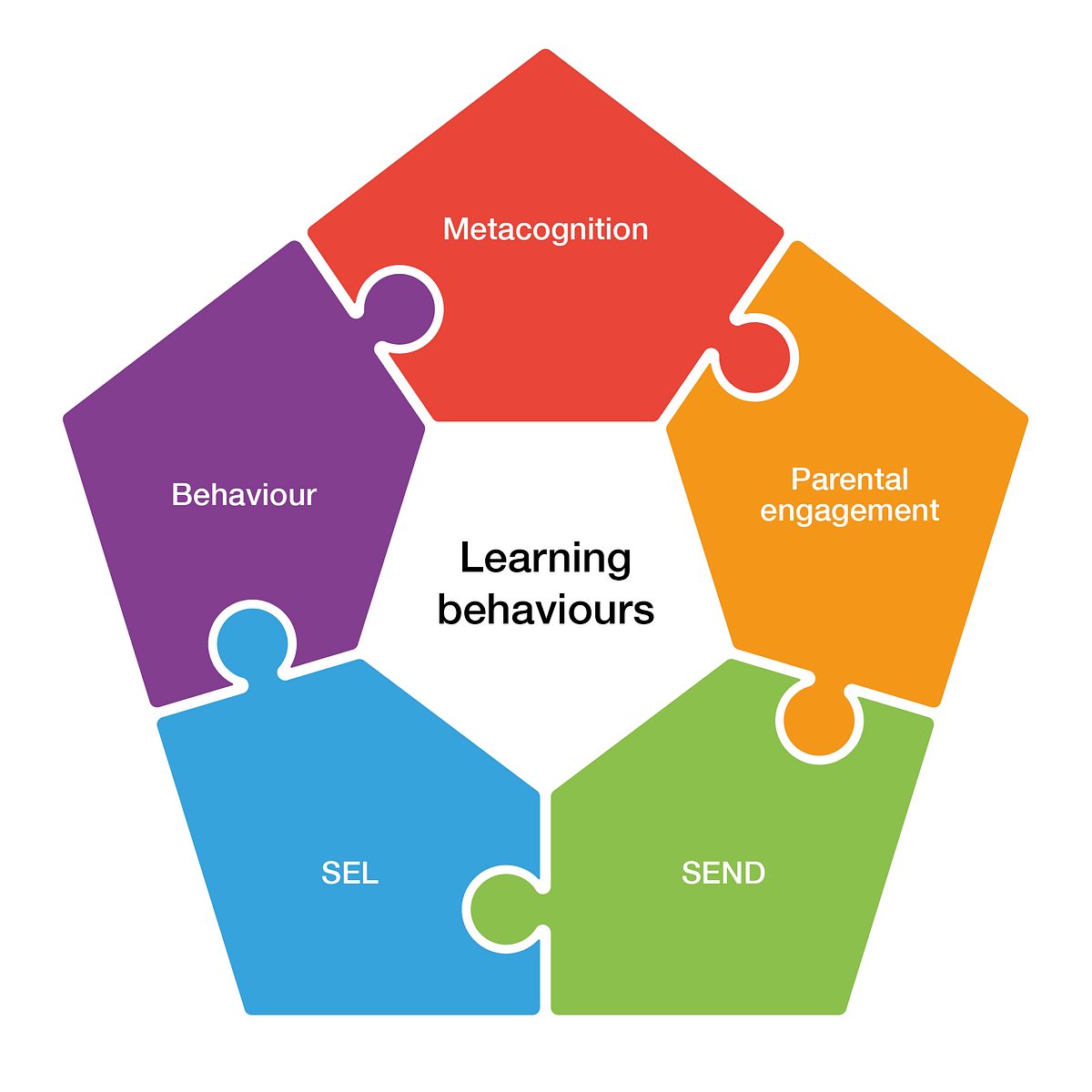
Blog -

Share on:

by Research Schools Network
on the
Kirsten Mould is Learning Behaviours Content Specialist for the Education Endowment Foundation (EEF) alongside working at Mary Webb School and Science College in Shropshire as Head of Personalised Learning/Transition and SENCo.
When we use the word behaviour we can quickly assume that it relates to strategies to manage misbehaviour in the classroom. It is of course important to have strategies to minimise this, but teachers can also explicitly support ‘learning behaviours’. As we teach, develop and strengthen these learning behaviours, young people become more motivated and determined to succeed.
Effective learning behaviours have emerged from the rich and diverse evidence base represented in the EEF guidance reports on improving behaviour, metacognition and self-regulation, special educational needs in mainstream schools, working with parents, and social and emotional learning. They form a crucial interconnecting puzzle of useable evidence. Successful learning behaviours rely on layering all these areas to wrap around every child in our schools.
Each is part of a puzzle which makes best sense when all parts click together, building long-term protective factors for deeper learning.

Positive and proactive association with behaviour
| |
Promoting positive parental engagement
| Planning for self-regulation strategies
|
Know your pupils with SEND
| Sequenced social and emotional learning
|
What’s next?

Blog -

Blog -

Blog -
This website collects a number of cookies from its users for improving your overall experience of the site.Read more